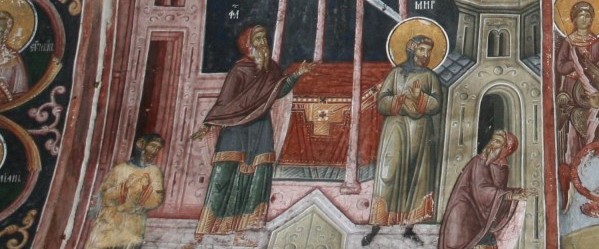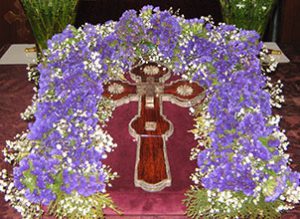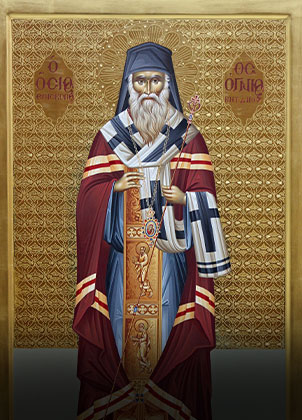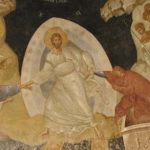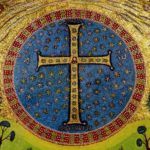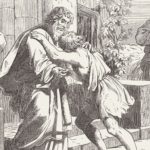Во имя Отца и Сына и Св. Духа.
Братия и сестры,
сегодня, в преддверии Великого Поста я хочу поговорить с вами о притче о Мытаре и Фарисее.
«Два человека вошли в храм помолиться: один фарисей, а другой мытарь. Фарисей, став, молился сам в себе так: Боже! благодарю Тебя, что я не таков, как прочие люди, грабители, обидчики, прелюбодеи, или как этот мытарь: пощусь два раза в неделю, даю десятую часть из всего, что приобретаю. Мытарь же, стоя вдали, не смел даже поднять глаз на небо; но, ударяя себя в грудь, говорил: Боже! будь милостив ко мне грешнику! Сказываю вам, что сей пошел оправданным в дом свой более, нежели тот: ибо всякий, возвышающий сам себя, унижен будет, а унижающий себя возвысится». (Луки 18, 10-14)
С этой притчи начинается Постная Триодь, богослужебная книга, которая ведет нас через весь Великий Пост и преимущественно учит покаянию.
Уже отсюда можно видеть как важна эта притча для духовной жизни. При всей своей краткости и простоте она имеет глубочайшее значение. В немногих словах она четко обозначает истинное направление духовной жизни в образе Мытаря, и ложное – в лице Фарисея.
Фарисеи были строгими ревнителями закона Божия. Это были люди праведные, искавшие праведности в точном соблюдении Закона. Мытари, напротив, были отщепенцами. Их все презирали за то, что ради наживы, ради незаконного обогащения, они предали свой народ и пошли на службу к его поработителям, римлянам.
Итак, Господь в притче представляет праведника и грешника, причем представляет их молящимися в храме. Значит, речь идёт о внутренней духовной жизни, о взаимоотношении человека с Богом. Изобразив видимую сторону картины, Господь затем, как «ведущий тайны сердца», открывает то, что никто другой не мог бы узнать: грешник вышел оправданным, а праведник был отвержен от лица Божия.
Какая же причина того, что праведность фарисея была отвержена Богом?
Богослужение недели Мытаря и Фарисея отвечает на этот вопрос: «От дел похваленьми, фарисея оправдающа себе осудил еси Господи» – говорится в службе Триоди (стихира на хвалитех, на Слава). Т.е. «Ты, Господи, осудил фарисея, оправдывавшего себя (считавшего себя праведным) и хвалящегося своими делами».
Таким образом, Фарисей осужден не по какой другой причине, как потому что сам себя почитал праведным.
Старец Амвросий Оптинский говорил: «Самооправдание в Евангельском законе не прописано». Т. е. оно совершено чуждо христианскому настроению, ему нет места, ни в каком виде, в сердце христианина. Самооправдание не попускает ни прощать, ни искренне просить прощения. Самооправдание это стена, отделяющая душу человека от Бога. Самооправдание это то, что составляет внутреннего Фарисея.
Человеку во время его земной жизни не дано видеть свои достоинства. Потому святые только после их кончины прославляются за их подвиги. Многие этого не понимают и считают возможным говорить о своих хороших качествах. Например, можно слышать как люди говорят: «я глубоко верующий человек» или «я не злопамятный» и т.п. Некоторые даже сравнивают себя с другими людьми, т.е. буквально повторяют евангельского фарисея, который говорил: «я не таков, как прочие люди».
Во время Великого поста в молитве св. Ефрема мы молимся: «Господи, даруй мне зреть мои прегрешения». От видения своих прегрешений, недостатков, немощей, страстей, рождается смирение. Напротив, видеть в себе какие либо достоинства, добрые качества, это само по себе уже есть бесовское обольщение и гордость.
Преп. Амвросий Оптинский говорил: «Если кто думает, что он имеет какую-либо добродетель, то он потеряет ее». А св. Исаак Сирин говорит так: «Во всем, чем ни хвалится человек, Бог попускает ему изменяться, чтобы он был уничижен и научился смирению».
Смиренномудрие, т.е. невысокое мнение о себе самом, это основание духовной жизни. Смиренномудрие состоит в том, чтобы ничего не приписывать самому себе, своим усилиям, а все относить к Богу. Как св. Апостол Павел, перечислив свои апостольские подвиги, говорит: «не я, а благодать Божия, которая со мною» (1 Кор. 15:10)
Однако не нужно думать, что от благочестивой жизни рождается гордость. Напротив, жизнь без страха Божия ведёт к гордости, а жизнь по заповедям Евангелия, если она идёт в правильном направлении, ведёт к очищению сердца от страстей, и к смирению.
Аминь.
In the name of the Father, the Son and the Holy Spirit.
Brothers and sisters,
On the threshold of Great Lent, I wish to converse with you on the sermon of the Pharisee and the Tax collector.
“Two men went up to the temple to pray, one a Pharisee and the other a tax collector. The Pharisee stood and prayed thus with himself ‘God, I thank You that I am not like other men – extortionists, unjust, adulterers, or even as this tax collector. I fast twice a week; I give tithes of all that I possess.’ And the tax collector, standing afar off, would not so much as raise his eyes to heaven, but beat his breast, saying, ‘God be merciful to me a sinner. I tell you, this man went to his house justified rather than the other; for everyone who exalts himself will be humbled, but he who humbles himself will be exalted.” (Luke 18:10-14).
This Gospel parable marks the beginning of the Lenten Triodion, the Book of Divine Services, which guides us through the whole Great Lent and primarily teaches us repentance.
From this we already can see how important this parable is for a spiritual life. Despite its brevity and simplicity, it carries most profound meaning. In a few words it designates the true spiritual direction in the form of the tax collector, and its false opposite – in the form of the Pharisee.
Pharisees were strict adherents of God’s Law. These were righteous people, seeking righteousness through precise observance of the Law. Quite the opposite, tax collectors were regarded as renegades. They were despised by everyone because for the sake of unlawful enrichment, they betrayed their people and served their enslavers – the Romans.
Thus, the Lord presents in His parable a righteous man and a sinner, and with that, reveals them at prayer in the temple. This means the discourse is about the inner spiritual life – about interrelationship of man with God. Having depicted the visual side of the picture, the Lord Who “knows the secrets of the heart”, reveals that, which no one else would know: the sinner came out justified, while the righteous was rejected from the face of God.
What was the reason for God’s rejection of the Pharisee’s righteousness?
The Church Service of the Sunday of the Pharisee and the Publican answers that question: “O Lord, Thou hast condemned the Pharisee who justified himself (i.e. regarded himself as righteous) by boasting of his works”. (Stichera at Praises)
Consequently, The Pharisee was condemned for no other reason than for having deemed himself to be righteous.
Elder Ambrose of Optina states: “Self-justification is not recorded in the Gospel’s law”. I.e. it is totally alien to the Christian attitude – it has no place in the heart of a Christian in any shape or form. Self-justification is a wall that separates the soul from God. This self-justification doesn’t allow to either forgive, or to ask sincerely for forgiveness. Self-justification is that which the inner Pharisee is made up of.
During the earthly life, a person is not given the ability to see his/her worthiness. That’s why it’s only after their deaths the Saints are venerated for their deeds. Many don’t understand this and consider that you can speak about your good qualities. As an example, one can hear people say: “I am a deep believer” or “I am not resentful” etc… Some even compare themselves with other individuals, thus, they literally repeat the words of the Gospel’s Pharisee, who says: “I am not like other men.”
During Great Lent, we repeat Saint Ephraim’s prayer: “Lord, grant me to see my transgressions”. Humility is born from seeing our transgressions, failures, weaknesses and passions. Whereas to see in yourself some worthiness and good qualities is – in itself – the demonic delusion and pride.
St. Ambrose of Optina says: “If a person thinks that he has within him some virtue, then he will lose it.” While St. Isaac the Syrian states: “In whatever a person praises himself, God will allow it to change so that the individual will be degraded and learn humility.”
Humble-mindedness i.e. not to have a high opinion of one’s self is the basis of a spiritual life. This humble-mindedness consists of not ascribing anything to yourself, to your own efforts, but to attribute everything to God. Just as holy Apostle Paul after enumerating all his Apostolic labours, says; “Yet not I, but the grace of God which is with me.” (1 Cor. 15:10).
At the same time, one shouldn’t believe that pride is born through pious living. On the contrary, life without the fear of God leads toward pride, and a life according to the Gospel commandments – if it goes along the correct direction, leads to the cleansing of the heart from all passions and toward humility.
AMEN

